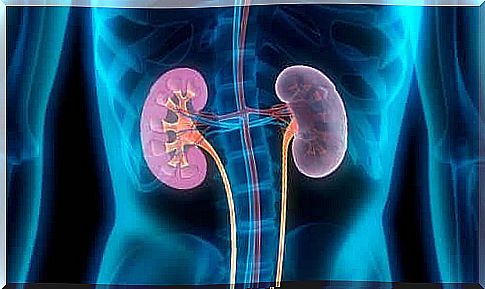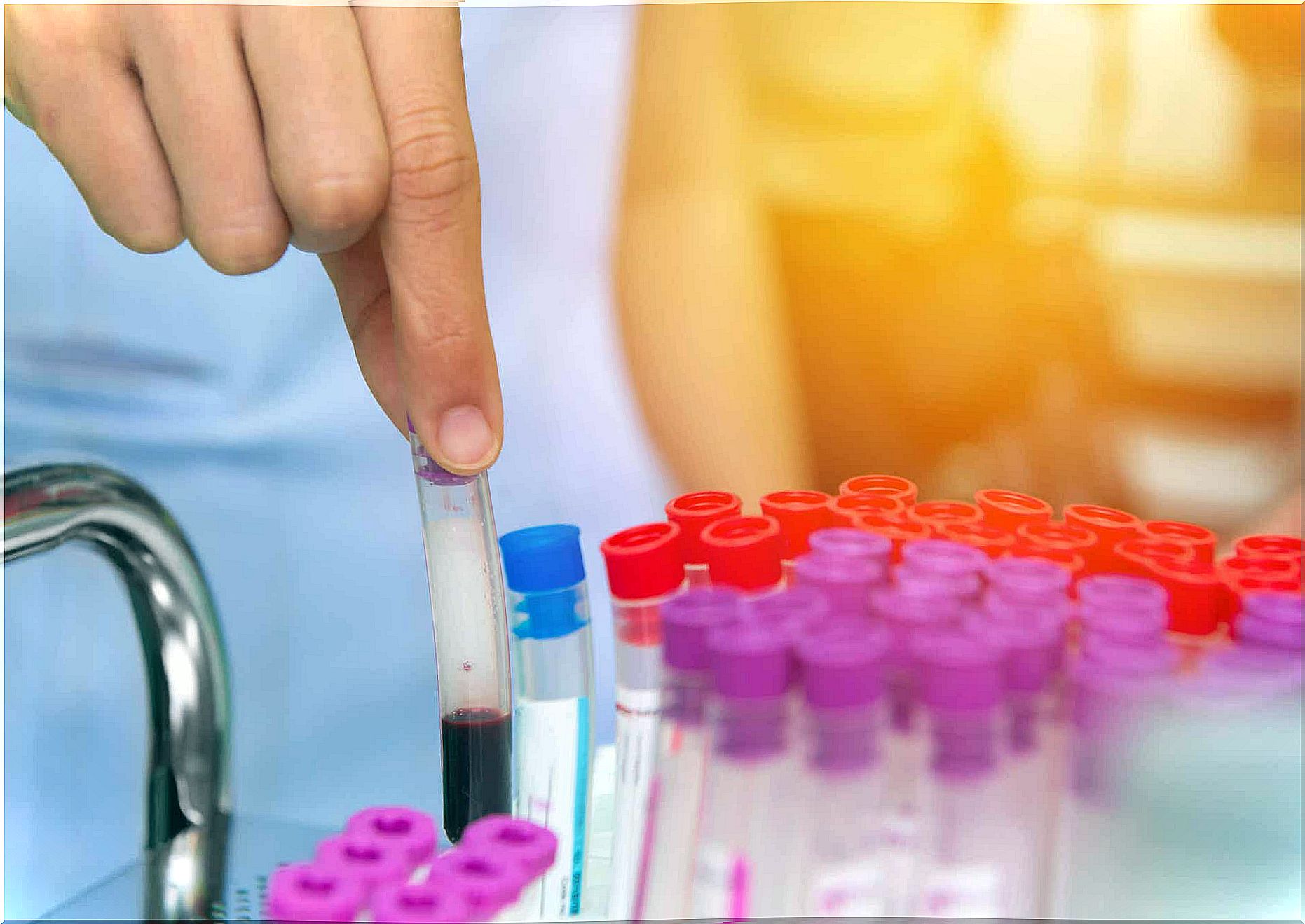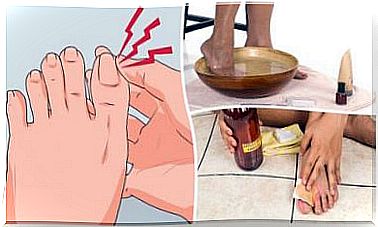IgA Nephropathy: What Is It And Why Does It Occur?

IgA nephropathy is a disease that involves the accumulation of a protein (immunoglobulin A) in the kidneys. This causes inflammation. In the long run, it can seriously affect kidney function.
IgA nephropathy is also referred to as “Berger’s disease” or “immunoglobulin A nephropathy”. The development of this disease varies greatly from person to person. In some it disappears completely with time, while in others it leads to end-stage renal failure.
Unfortunately, there is currently no cure for IgA nephropathy. However, there are treatments to stop the course of the disease. IgA nephropathy can occur at any age, but it is more common in adolescence and into the thirties. In addition, men are more likely to get it.
Let’s take a closer look at it.
Symptoms of IgA nephropathy

IgA nephropathy is a slowly progressive disease. In the beginning, there are no noticeable symptoms and therefore the disease may be present for years or decades without being detected. The characteristic symptom is the presence of blood in the urine, but it is often so small that it is difficult to notice.
Sometimes doctors detect the disease in a routine urine test. This reveals the presence of protein and red blood cells, which raises suspicion. After a cold or infection, it is also possible for the urine to turn pink or brownish. This color reveals the presence of blood.
Other symptoms may include the following:
- Dark or pink urine after strenuous exercise.
- Foaming urine.
- Pain in one or both sides of the back, in the lower part of the ribs.
- Swelling in hands and feet.
- High blood pressure.
- A large amount of albumin in the urine, which can only be detected with a laboratory test.
If a person develops IgA nephropathy, other signs and symptoms appear, usually 20 to 30 years after receiving it, such as the following:
- Hypertension.
- Little or no urination.
- Swelling.
- Dark and dry skin.
- Generalized itching or numbness.
- Cramps in the body.
- Headache.
- Nausea and vomiting.
- Weight loss.
- Fatigue, drowsiness and loss of appetite.
- Sleep problems.
- Difficulty concentrating.
What is the cause of this nephropathy?
The function of the kidneys is to filter the blood. To do so, they send the waste to the bladder to be excreted. The filtered blood, in turn, enters the bloodstream again. On the other hand, immunoglobulin A (IgA) is a protein that helps protect the body from infections.
In the kidneys, there are small filters called glomeruli. What happens with IgA nephropathy is that IgA protein builds up in these filters. As a result, lumps form and damage the glomeruli. This is when the kidneys begin to fail and allow blood to pass into the urine.
It is not clear to science why this is happening. However, experts believe that there may be a link between IgA nephropathy and the following factors:
- Gener. It is more common in certain ethnic groups and some families.
- Liver disease. Especially chronic hepatitis B or C infection or cirrhosis.
- Celiac disease. Gluten seems to play a role in this disease.
- Bacterial and HIV infections.
Risk factors for IgA nephropathy
IgA nephropathy is a common kidney disease, but experts have found certain patterns in those who suffer from it. Based on this, we can say that the risk factors for developing this condition are the following:
- Age: It can occur at any age, but it occurs more often in adolescence or between the ages of 30 and 40.
- Gender: Men are three to six times more likely to develop IgA nephropathy.
- Ethnicity: The disease is more common among whites and Asians than among blacks.
- Family history: In some cases, this condition is hereditary, but not always.
Possible complications of IgA nephropathy
The most serious complication of this disease is acute or chronic renal failure. According to estimates, one in ten to twenty children with IgA nephropathy will develop kidney failure. The ratio in adults is one in four.
Other less serious and more frequent complications include the following:
- Hypertension. Damage to the kidneys causes the pressure to increase and this further aggravates the kidneys.
- High cholesterol. This increases the risk of heart problems.
- Nephrotic syndrome. Includes manifestations such as high protein content in the urine and low protein content in the blood, higher cholesterol and lipid levels and swelling in the feet, abdomen and eyelids.
- Enoch-Schönlein purpura.
How is it diagnosed?

Very often in the beginning there is only a suspicion that the disease is present. The doctor takes into account family history and some symptoms such as pain or swelling.
The results of a blood test may also indicate IgA nephropathy. Once the suspicion exists, the next step is to confirm the diagnosis with clinical tests such as the following.
Urine sample
Doctors usually perform a test for albumin and blood. The test consists of taking a urine sample and placing a special paper in it. If there is albumin or blood in the urine, the paper changes color.
Doctors can also do a test of the ratio of albumin to creatinine. This consists of comparing the amount of both substances in the urine within 24 hours. If there is more than 30 milligrams of albumin per grams of creatinine, it is a sign of chronic kidney disease.
Blood test
A blood test helps determine how much blood the kidneys filter per day. minute. This measurement is called eGFR. A result of 60 indicates normal operation. Anything below this number suggests kidney disease. If it is less than 15, kidney failure is likely.
Kidney biopsy to detect IgA nephropathy
Kidney biopsy is the standard test for IgA nephropathy. Although the other tests provide valuable clues, a biopsy is the only way to confirm the diagnosis. This consists of taking a piece of tissue from the kidneys for analysis under the microscope.
This test requires local anesthesia and a mild sedative. The results make it possible to check whether there are IgA deposits in the glomeruli, which are the small filters in the kidneys. It also allows physicians to determine the extent of kidney damage and provides important clues to treatment.
Iothalamate clearance test
In this test, a contrast agent is used. This is a substance that allows better visualization of how the kidneys filter waste. It is not a test that is performed frequently.
What treatments are available?
As we said at the beginning of this article, IgA nephropathy cannot be cured, but treatment can help keep the disease from developing. It also serves the purpose of relieving symptoms and preventing complications.
In general, treatment for IgA nephropathy is pharmacological and may include the following medications:
- Medicines for high blood pressure.
- Omega 3. These fatty acids are found in supplements and can help reduce inflammation in the glomeruli.
- Immunosuppressive agents. These drugs that suppress the immune response are sometimes prescribed. However, they can cause serious side effects.
- Statin therapy. These help lower cholesterol and protect against kidney damage.
- Diuretics. These are used to remove excess fluid from the blood.
There are serious conditions where kidney dialysis must be used. However, all indications are that transplantation is better as it has better results in prolonging life and preventing recurrence of the disease.
Contact your doctor if you suffer from IgA nephropathy
There are no agents to prevent IgA nephropathy. However, if any of the risk factors are present, it is best to be aware of symptoms and consult a physician if abnormalities are detected.
A person with this condition should have regular medical follow-up. It is best to keep an eye on blood pressure levels, reduce the amount of protein in the diet and seek psychological support if necessary.









